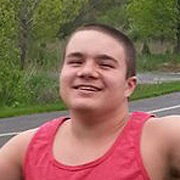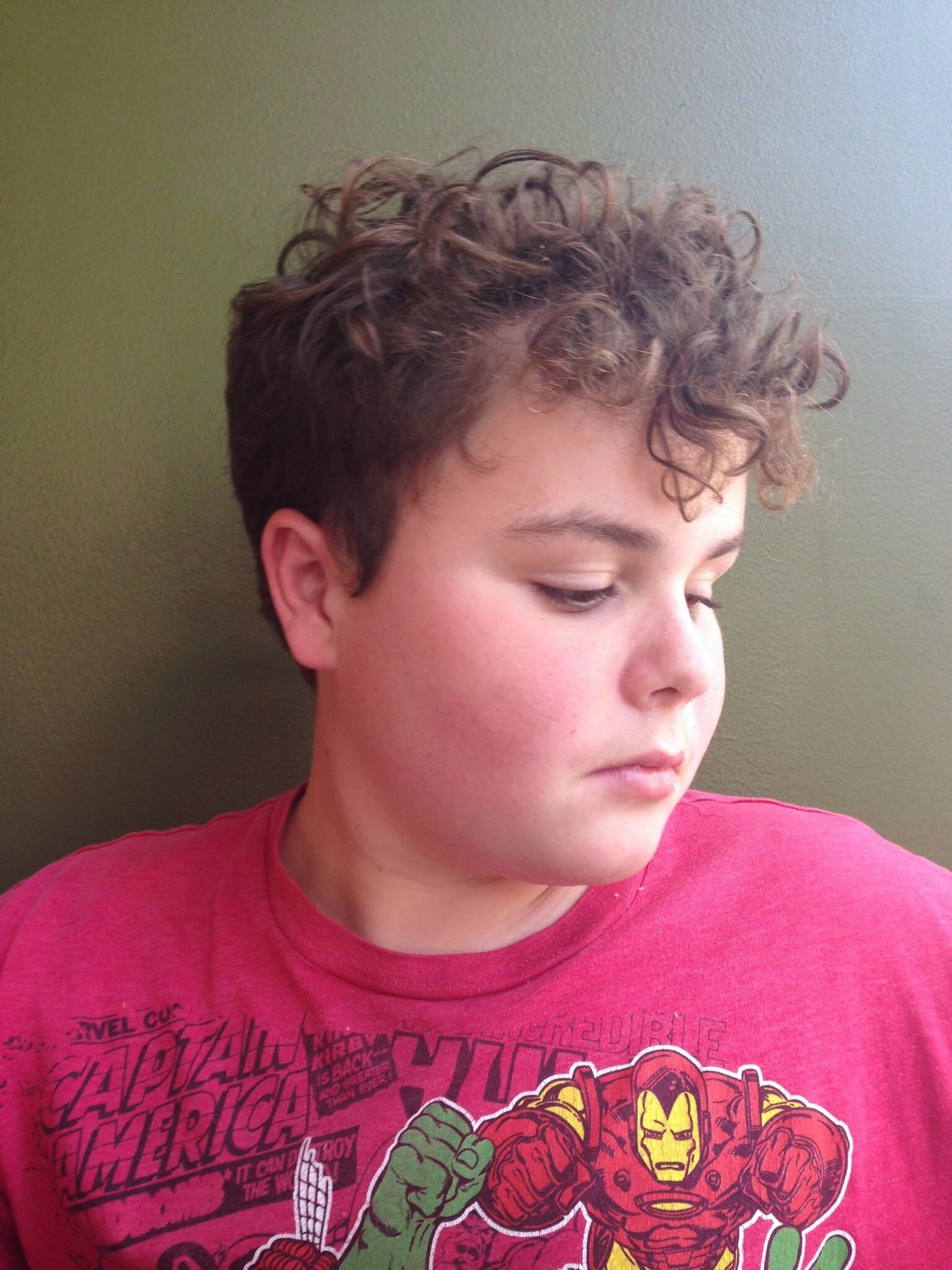Shannon Des Roches Rosa www.squidalicious.com Alex Spourdalakis [image: Smiling white teenage boy with shaved dark hair, wearing a coral colored tank top.] Alex Spourdalakis was brutally murdered by his mother and godmother three years ago. Somehow, those women were allowed to plead guilty to involuntary manslaughter* and will likely be released with time served — even though they had been planning Alex’s killing for a week. As reported by Matt Carey at Left Brain/Right Brain: “When they carried out their plan, they poisoned Mr. Spourdalakis with sleeping pills. When this did not work quickly enough, the mother and caregiver stabbed him. Not once, not twice, but four times, including two stabs to the heart. When even this proved not fast enough, the mother and caregiver slit his wrist. Slit so deeply that reportedly his hand was nearly severed from his arm. When Mr. Spourdalakis finally passed, the mother and caregiver…
Tag: Ableism
Maxfield Sparrow unstrangemind.com “These are dangerous days / to say what you feel is to dig your own grave.” -Sinead O’Connor Sparrow R. Jones [image: Portrait photo of a white person with short dark gray hair, glasses, and a maroon button-up shirt.] I blame myself. I should have campaigned more strongly. I should have written about the political landscape and how it affects disabled people in general, and Autistics and those who love us specifically. But I have always been told that one shouldn’t talk about politics, sex, or religion in polite company. I’ve already broken the sex talk taboo so many times over that I was reluctant to tread on religious or political ground. And I didn’t really think he would win. I honestly didn’t. Everyone I’ve spoken with who voted against him has said the same thing: we didn’t see this coming. Wow, were we ever wrong. Donald…
Disabled people do not exist to make non-disabled people feel like heroes.
Shannon Des Roches Rosa, with Carol Greenburg, Patricia George, and Christine Langager The disability and empowerment-themed website The Mighty recently published a post called Introducing: Meltdown Bingo, and sparked an actual Internet meltdown. In the post (since retracted by The Mighty’s editors), a parent used the popular Bingo Card meme to detail challenging aspects of their autistic child’s meltdowns. The online backlash from autistic and disability activists was understandably swift and strong, underpinned by a history of those activists’ dissatisfaction with The Mighty coupled with dismay over yet another hijacking of autistic children’s most vulnerable and misunderstood moments justified as parenting “honesty.” But here’s the thing most backlash commentary missed or ignored: The mother who wrote the post is autistic. Anyone who clicked on the author bio for the original Meltdown Bingo post would have read the following: “Christine is an adult-diagnosed autistic mother to autistic Cameron, 8.” Also missing…
Dear Robert Krulwich, Jad Abumrad, and the Radiolab team: Your autism-focused episode Juicervose has destroyed my faith in Radiolab and the integrity of its reporting. Rubbernecking about autism and autistic people is usually the realm of inexperienced journalists, but you don’t have that excuse. In fact, you have a MacArthur “genius grant” recipient on your team specifically because of your focus on “bringing new ideas to people.” So why did you choose to amplify the same hurtful, tired autism stories the media always airs? And why didn’t you show more compassion for autistic people themselves? Sure, you talked to Temple Grandin. With respect to both her and your team, every person on the planet has heard what Temple Grandin has to say about autism. Her ideas are not new ideas. And yes, you talked to Owen Suskind. It was wonderful to hear his voice and his perspectives. I am sincerely…
Adam Thometz angryautie.wordpress.com I recently came across a post by Lydia Brown at Autistic Hoya, one of my favorite autism/disability blogs, in which she creates a glossary of ableist vocabulary. The reason for including some of the words should be immediately apparent to anyone with their head in this century (eg. “retard,” “mongoloid,” “suffers from ___”) but there are some words, the inclusion of which seems questionable or just overly sensitive or PC to the average person (eg. “idiot,” “dumb,” “moron”). I myself was shocked to find these words as well but it turns out that these words have a dark history that most people are not apparently aware of. When I debate with someone about autism in real life, I might perform what the average person would see as nitpicking: criticizing the use of certain words or phrases. My reason for doing this is that they invisibly propagate the…
Lydia Brown autistichoya.blogspot.com It’s everywhere. “Autism isn’t mental illness. We’re not like those people.” “It wasn’t an autistic person who would commit mass murder. Only people with actual mental illness, like psychopaths or schizophrenics do that kind of thing.” “Those ideas are insane!” “Autism Speaks’s idea of representing Autistic people is absolutely crazy.” “People who want to give their kids bleach enemas are just nuts. Their ideas are nuts.” It comes not merely from Autistics and non-Autistic parents and professionals and researchers but also from Autistics and non-Autistic parents and professionals and researchers who are disability rights advocates and activists. Take the humble pill, recognize your own strands of ableism, and stop using the ableist language. It is not okay to refer to ideas and people with whom you disagree as ‘insane’ or ‘crazy’ or ‘nuts’ or ‘loony,’ because those are hateful and hurtful words just as much as the…
Chavisory www.chavisory.wordpress.com I got to open my presents early for Christmas this year, as my mother was going out of town to see family. I told her I hadn’t had a chance to wrap hers yet, so she could open it when she got back Christmas night. We didn’t get to finish opening presents that night. We had a yelling match about the true nature of the autism spectrum. I was diagnosed with Asperger Syndrome a year and a half ago (though I’d known the truth for several years previously), which I guess that most people in my life probably know by now because I decided that it was part of my life that I wasn’t going to make any particular effort to hide, because I had nothing to be ashamed of. I really have no idea what people think of me as a result, because I stopped concerning myself…
Lydia Brown autistichoya.blogspot.com From the editors: We hope that even veteran autism parenting advocates and self-advocates will consider this post part of their neurodiversity education, along with Todd Drezner’s recent HuffPo article Nickels, Dimes and ‘High-Functioning’ Autism — and that it leads to productive reflection and discussion. From the author: Trigger warning: This is mostly about ableism and a response to other, very triggering things, as well as including lots of direct quotes of ableist stuff. An accessible audio recording: Tired – Autistic Hoya by autistichoya I’m tired of being misrepresented. I’m tired of seeing the principles of self-advocacy misrepresented. And I’m tired of seeing the autism rights movement misrepresented. Let me be clear. I’m not talking about allies, or about people who were just thrust into Autismland and don’t yet know much, if anything, about the constant conflicts that erupt here. This isn’t about you. This is about people…
Julia Bascom juststimming.wordpress.com Explaining my reaction to this: means I need to explain my history with this: 1. When I was a little girl, they held my hands down in tacky glue while I cried. 2. I’m a lot bigger than them now. Walking down a hall to a meeting, my hand flies out to feel the texture on the wall as I pass by. “Quiet hands,” I whisper. My hand falls to my side. 3. When I was six years old, people who were much bigger than me with loud echoing voices held my hands down in textures that hurt worse than my broken wrist while I cried and begged and pleaded and screamed. 4. In a classroom of language-impaired kids, the most common phrase is a metaphor. “Quiet hands!” A student pushes at a piece of paper, flaps their hands, stacks their fingers against their palm, pokes at…



